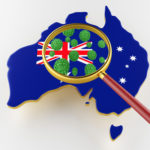Skewed Priorities: Qld Premier Under Fire Over Inconsistent COVID Restrictions

Seemingly oblivious to the extent of the heartache and disruption caused by Queensland border closures over the past several months, Annastacia Palaszczuk has further angered many Australians by allowing record crowds to attend the State of Origin Final this week.
Criticisms about ‘skewed priorities’ have been levelled at the Queensland Premier since she allowed the AFL players and WAGS into Queensland mid-year at the same time as New South Wales border residents desperate for access to medical services weren’t allowed to cross over into the Sunshine State.
‘Skewed priorities’
In a move that’s attracted the wrath of Home Affairs Minister Peter Dutton – as well as many others – she lifted caps on sporting crowds in time for the State of Origin final.
The game attracted almost 50,000 people to Suncorp Stadium with many commenting on social media that social distancing didn’t appear to be adhered to.
Meanwhile, the Queensland and the border remains closed to 32 New South Wales Local Government areas, and 20 in South Australia – these have been declared Covid-19 ‘hotspots’ and anyone from these areas is refused entry to Queensland.
The impact of border closures
Currently, Queensland restrictions also include a cap on 200 people attending both weddings and funerals. And it seems the latter has given rise to ire in Mr Dutton who says while he supports the easing of restrictions, maintaining restrictions on funerals is “unacceptable”.
“Funerals are a once-in-a-lifetime chance to show respect to a loved one, and people can’t travel up from Sydney to support the family in that circumstance,” Mr Dutton has told media.
“If it’s OK for the Premier to allow tens of thousands of people to sit next to each other at a football match, how does she justify not allowing someone to go to the funeral of their mother or son?”
‘Political’ rather than health-based decision-making
The Home Affairs Minister has accused Ms Palaszczuk of making decisions based on ‘political benefit’ rather than health advice.
This isn’t the first time the sentiment has been expressed.
In September, Ms Palaszczuk and Prime Minister Scott Morrison went head to head over the Queensland Government’s decision not to let a Canberra-based woman attend her father’s funeral in Brisbane. When the Prime Minister attempted to intervene on the woman’s behalf he found himself being accused of ‘bullying’ by the Queensland Premier.
Around the same time news surfaced that a New South Wales family of four had been told by Queensland authorities that only one child in the family could visit their dying father in Brisbane due to strict border restrictions.
Eventually in both circumstances, the Queensland Government gave exemptions – albeit under public pressure.
However, the decisions made by the Queensland Premier do lack any real consistency and there seems to be no end in sight to what appears to be illogical and spontaneous decision-making.
While the Prime Minister had hoped that all state and territory borders would be open by Christmas (with the exception of Western Australia) the recent Covid-19 outbreak in South Australia has definitely reminded us that Covid-19 is still present, and that individual jurisdictions are prepared to act quickly with severe restrictions including, where deemed necessary, lockdowns to contain and eradicate clusters.
As more Australians return home now that international flights restrictions are also easing, it’s likely that many could still bring the virus with them, and it’s expected that even though they will face particularly stringent quarantine, there is a potential risk of outbreaks.
State rivalry
What’s also concerning is that the state-based approach to Covid-19 over the past several months is beginning to dismantle our sense of nationalism, and become instead a collection of individual rival states, with each Premier declaring that in the war against Covid-19 each will put their ‘own people’ first.
This is their mandate to do so – the national cabinet process gave the state and territory leaders recognition and stature for their roles in running hospitals, schools and police. They are responsible for contact tracing and for making their own rules about border closures and what’s permissible under pandemic health regulations.
All in this together?
But it is becoming increasingly clear that as a nation we’re not necessarily ‘all in this together’. Border closures have taken a particularly heavy emotional toll on many people – with some unable to see friends, family and loved ones. With families split for work purposes and some unable to access critical services.
Only time will tell what kind of effect this has on the nation as a whole.







